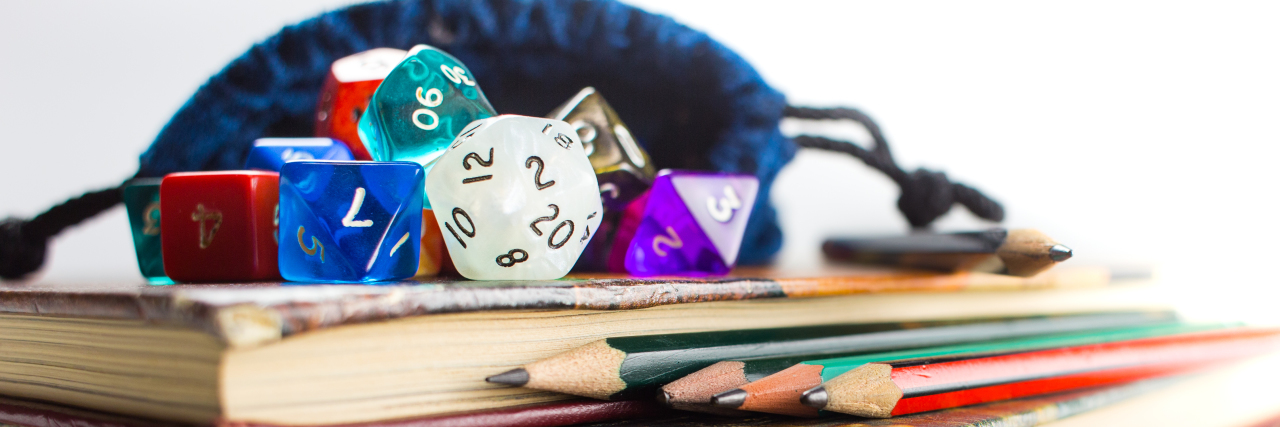How I Make Friends as an Autistic Person
Editor's Note
If you want to have a conversation with people who “get it,” join The Mighty’s Chat Space group.
I have always been blessed with friends not only as an autistic, but as a person. As someone who can’t read body language, who has a hard time learning social skills, and struggles to make eye contact, I shouldn’t be very good at making friends. Thanks to different people I have learned a lot, worked hard, and I make friends fairly easily. Here are some things that have helped me.
The most important thing I have learned is to listen. If I listen, I don’t need any social skills. If I don’t understand something, I can just ask. People are almost always very happy to help me understand what they are saying. If I am asking questions, they know I am paying attention — even if I am not looking at them or if they see I am not following their body language. That means so much to people; they will often see past all my social shortcomings.
If you listen, everybody will talk to you. People come to me and tell me everything because they know I will listen. Your turn to talk will come because they will ask questions. Unless they ask, I usually let the other person talk for most of the first time we meet.
Common interests are a big factor. It means something to be all in the same boat. Something to talk about besides the weather.
It is OK to just have one interest in common. I was friends with one lady only because of scuba diving. We met at a tour that was made for finding buddies. You have to have a buddy to go scuba diving. The only reason we even met was because we swam about the same speed. So we started diving together. Our lives were so different, we would have never talked to each other otherwise. We had a great time diving.
In my experience, common interests are the best way to find friends. One thing I like to go to is Dungeons and Dragons. It is usually played by quiet, nerdy people like me. I have sensory problems and I don’t like loud sounds or bright lights. The people I meet there may or may not have sensory processing disorders, but they still usually felt the same way about those things. I find because of that, they also enjoy other things I do. My brother, on the other hand, has ADHD and enjoys loud, active places. So he goes to sports parties. He meets other people like him, just like I did at Dungeons and Dragons.
The best friends I have made are people I met in real life peer support groups. Our friendship was based on making each other’s lives better.
It is OK to have different friends for different activities. Not all my friends enjoyed Dungeons and Dragons. Not all my friends enjoyed scuba diving. Not all my friends enjoy trivia. I don’t think I will find many people that enjoy everything I do, so I’m not expecting them to. All of my friends go to different activities I don’t enjoy. I don’t go to those, but I don’t hold them against them.
Of course, before you find quality friends, you’re going to have to wade through some people. Again, I can’t read body language, so I have no way of telling who’s a good person and who’s not. I had to make a choice. I can either trust everybody the first time or trust nobody the first time. I did the nobody thing for a while. It’s really lonely. Yes, since I have been trusting everybody the first time, I’ve gotten screwed a number of times. But I have made so many more friends and I have so much more fun.
I have learned to open up at a medium speed. I will loan somebody a little bit of money the first time. If they don’t repay it, I will make a decision if it is worth it to keep them as a friend. I will trust people with smaller items. As time goes along, if I feel safe, I will trust them with more.
Trust is not an all-or-nothing situation. Just because I can’t trust them with one thing doesn’t mean I can’t trust them with other things. I will just trust them with the things I can. I will not trust them with the things I can’t. It’s important to keep your boundaries.
Most people really want attention and inclusion. Again, listening is so important. I think the kindest thing you can say to anybody is, “Would you like to come along?”
After that, it is really up to you and the other person. These basics should get you started. You don’t need social skills — just kindness, a common interest, and to listen.
May you be blessed with friends.
Getty image by LanternWorks.

